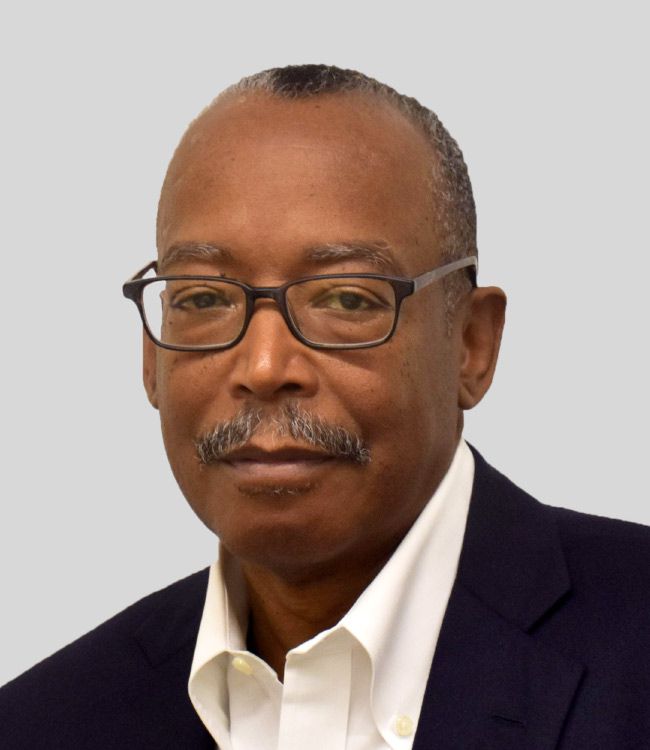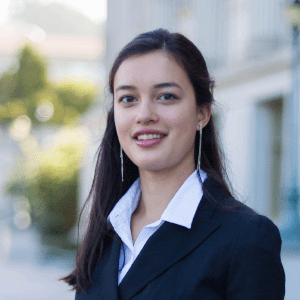
Speaker Spotlight: Vence Bonham
Undergraduate science communication intern Mira Cheng sits down with speakers from the weekly IGI Seminar Series to discuss their innovations, motivations, and eclectic hobbies.
Vence Bonham, J.D., is an Associate Investigator in the Division of Intramural Research’s Social and Behavioral Research Branch, and a Senior Advisor to the NHGRI Director on Genomics and Health Disparities at the National Human Genome Research Institute. I interviewed Bonham when he spoke at the IGI on February 18th, 2020. An abridged version of our conversation appears below.
 MC: Could you please tell me a little bit about your journey to where you are today professionally?
MC: Could you please tell me a little bit about your journey to where you are today professionally?
VB: “My journey to my work today has included a background in teaching medical students. I was on the faculty at Michigan State University for a number of years; I taught health policy and bioethics to medical students as they were beginning their careers as clinicians. And that was important to my work that I do today, studying questions around: how do we make genomic science beneficial to everyone, and not just the few? My research program and everything that I’m involved in today is really to enhance health equity related to genomic science.”
MC: Who were your role models throughout this journey?
VB: “I’ve had a lot of role models and a lot of mentors along the way that have opened doors for me and provided support. I continue to have role models and mentors that support me. But I think, from my perspective, my first role models were my family. My father died at a fairly young age, but made such an important impact on me. Then I [also] had professors that I think were important to who I am today, how I ask questions, and how I move forward with regards to my research program.”
MC: What is the hardest challenge that you’ve had to overcome in the journey to where you are today?
VB: “I think one of the challenges to overcome is: how do you bring people from different disciplines together to work in sync to address a research problem or tackle an issue? I think it’s important because we really need individuals with different disciplinary expertise to be thinking about questions [together]. I started out as a lawyer, I was a healthcare lawyer for a number of years, and then went back and did a fellowship in health policy and health services research. So I bring that expertise along with my collaborators, genomicists and hematologists, to study and tackle issues of importance, particularly around sickle cell disease, but [also] around integration of genomics into clinical care.”
MC: How did you come to work on the research you presented today in the seminar lecture?
VB: “I have been at the National Human Genome Research Institute since 2002, which was right at the completion of the Human Genome Project. It was a time period when, [having] sequenced the first human genome, we recognized that there were a number of questions about what this [was] actually going to mean for the diverse populations of this country and [the world]. Questions of justice and equity—how do we reduce the disparities that occur in health outcomes—became a focus of my work. And that brought me to the work that I presented today around sickle cell disease. I see sickle cell disease as a health care disparity disease; a genetic disease where the outcomes and the experiences are evidence of not getting the necessary treatments and focus historically. And so I see [sickle cell disease] as an appropriate disease to study from those questions of justice and health equity.”
MC: How do current practices in genomic research and clinical care exacerbate health inequalities?
VB: “I think that there are two areas that I highlight when we talk about this issue of the challenges that we have today within the field. Number one, is that we really do not have a full understanding of the ancestral diversity of this world, and of the human genome. It’s important to understand and [recognize] that human genetic variation exists in order to improve health for everyone, including those communities that are [currently] left out. I see this as a major problem that we have to continue to strive to change because currently the vast majority of genomic science research studies have been conducted in European populations. And when you think about the different [global] ancestral backgrounds, that’s less than 15 percent of the population. So we really are missing [important] information about the wealth of diversity across the world. I see that as the number one issue. I think the second area that I would identify as a major challenge is integration into clinical care. What we know is potential information that could be beneficial to people’s health, is not equally accessible across different healthcare systems, different geographic areas, different communities. We need to study ways to improve access to quality, precision genomic care.”
MC: How do we make sure that genomic science terms, such as “ancestral diversity,” don’t get misconstrued in broader, public conversations about identity?
VB: “I think this is an area [where] it’s important to have dialogues about how we talk about genetic difference, to put it into [the] context of how we think about identity, and [to clarify] that they’re not the same. As we think about social identity, and its relationship to genetics, I think we have to be very careful and thoughtful not to put people into bins that are social constructs. And as we conduct our research and design our research studies, we have to be very careful not to describe populations in ways that are reifying race as a construct. We need to be able to talk in a nuanced way about ancestral diversity because our bins of people don’t fit the reality of the richness of being human.”
MC: What are some potential ways that genomic knowledge could ameliorate health inequalities?
VB: “I think there is an opportunity in certain circumstances for genomic information and precision medicine to actually address some health disparities. [A key factor] is new knowledge about specific diseases that may impact certain populations more. I talk a lot about hepatitis C, and the development of treatments that I would describe as precision medicine treatments that have had a significant impact in reducing a public health burden that clearly has had an adverse impact on some groups more than others. I use that as one example, but there are a number of examples today where new treatments [have] started to grapple with major public health issues facing our country and the world.”
MC: What role do various institutions, such as the government or universities, play in disseminating educational resources in an equitable way?
VB: “I think that the government has an important role in helping to make sure that high-quality, scientific, accessible information is available to the general public. I think that academic institutions, institutes like IGI, have an important role to play to bring that knowledge and bring that science to the public. So I applaud the work that I’ve heard is going on here—there is a great opportunity and need. I think in some ways it’s easier today to reach people because of the ability to use the internet; it’s a good way to reach a broader audience both in this country and across the world. I think that’s an area where a lot of attention should be focused, making sure that there is high-quality information available on the worldwide web. I do think that there is a special responsibility for government agencies, but also academic institutions and researchers who are conducting the research, to make sure that their information is disseminated to the general public.”
MC: What advice would you give to researchers at various stages of their careers in terms of how to think about their ethical responsibilities?
VB: “I would say two things. One is that at all levels, particularly for junior scientists: to think about what they want to do with their career in science, to seize the opportunity to grapple with issues of improving access to quality care. As they do their basic science research, [they should] think about: Who will actually have the ability to benefit from this? Why am I studying this disease versus another disease? Why am I studying this group versus another group? To think about these things in a broad way, and to recognize that as a scientist they have an important role in making sure that we don’t continue to limit the questions that are asked, and limit the interpretation of data. From a very direct ethical [perspective], I think it’s always an obligation for individuals to raise questions, to recognize that if they see something that is not right they should speak up, and that they have a moral compass that they need to use.
With regards to senior investigators, I encourage them to push the limits to make sure that their work is actually going to impact people, beyond their own community. And I hope that my work will benefit others I never will know, both with regards to young scientists and also the populations I study. I would encourage senior scientists to take on that challenge, to actually make sure that their research will be beneficial to people beyond their own home.”
MC: What is something that you do a lot that people wouldn’t necessarily expect?
VB: “I am an art collector. I love art. I love going to art museums, art galleries, art fairs. I once owned an art gallery. I collect primarily African-American artists, but not exclusively. I love to follow what’s happening in the art world.”
MC: If you could describe yourself in three words, what would they be?
VB: “Inquisitive, supportive, driven.”
MC: If you could listen to a conversation between any two people (past or present), who would they be?
VB: “I would love to listen to a conversation between Martin Luther King Jr. and Malcolm X.”
MC: What advice would you give your younger self?
VB: “Enjoy the ride, life is short. Make sure that you take time to enjoy every step, every accomplishment, and everything that you do.”
 By
Mira Cheng
By
Mira Cheng